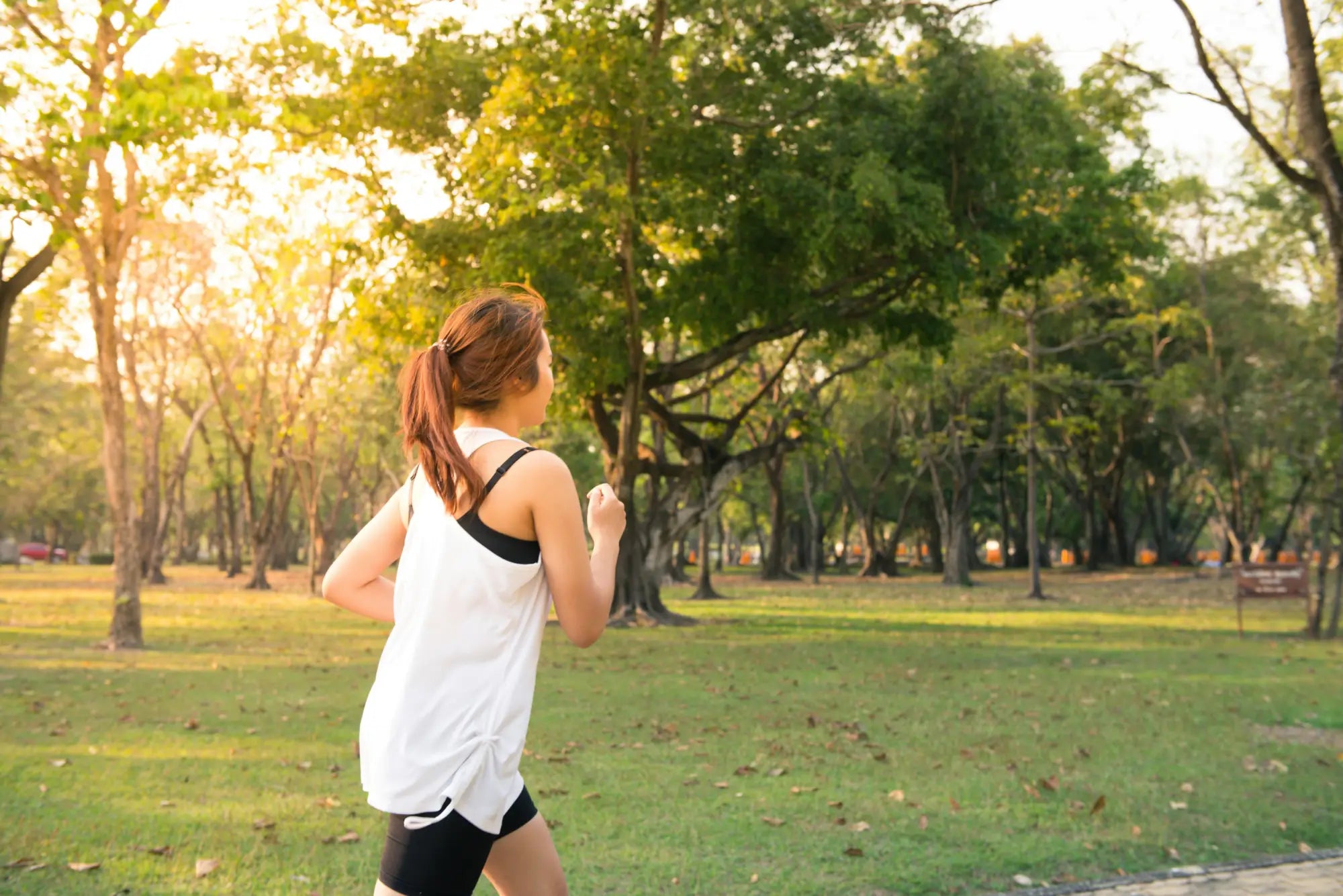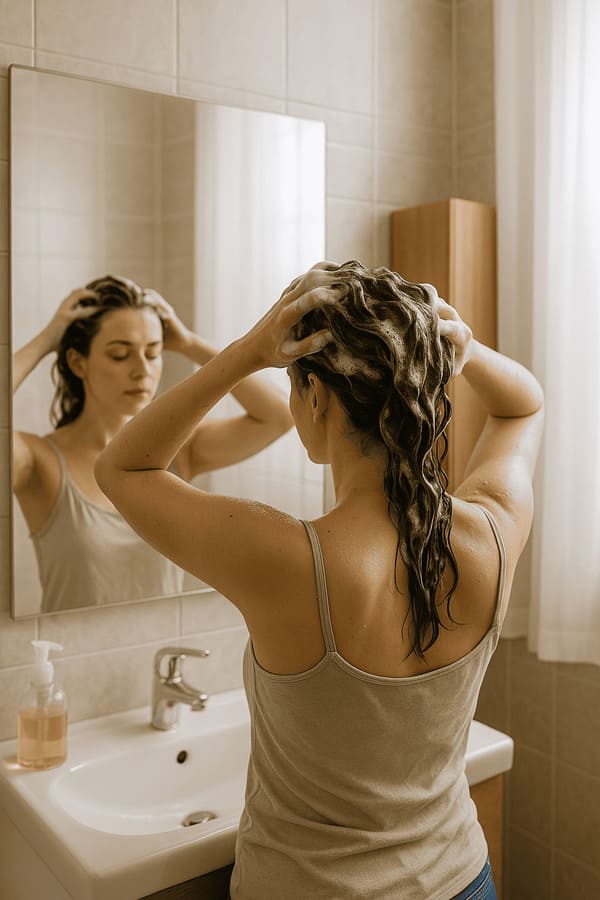Sweating is the result of a physiological process in our body to control its body temperature.
Sweating is influenced by external factors, such as high ambient temperature, physical activity, or internal factors, such as emotional states or physiological conditions such as adolescence or menopause.
What is sweat?
Sweat is a colorless liquid released through the sweat glands as a product of our body's thermoregulation process .
The only way the body can cool itself is through sweating and losing heat energy through evaporation.
Sweat is secreted by millions of glands located in the middle layer of human skin.
These glands are concentrated mainly in the forehead area, scalp, armpits, palms of the hands and soles of the feet.
As always, it is our brain that decides: as soon as it senses that our body temperature has risen above 37°C, it sends signals to the sweat glands to produce and release sweat, which thus cools the surface of the skin by evaporating.
Each person has between 25,000 and 50,000 sweat glands in the armpits alone. In total, there are between 1.6 and 4 million scattered throughout the body.
There are two types of sweat , depending on which sweat glands produce it: eccrine or apocrine.
Eccrine glands are found throughout the body and control body temperature. The sweat produced by these glands is usually odorless and colorless. It contains 99% water and various salts and amino acids.
Apocrine glands are concentrated in only a few parts of the body, such as the armpits, genitals, or scalp, and can be stimulated by stress. They are very active during puberty and menopause, producing sweat rich in proteins and lipids .
As a result, there are two different types of sweat:
- During thermal sweating induced by high temperatures or physical activity, eccrine sweat glands are activated.
- During situations of emotional stress or due to particular hormonal situations, both the eccrine and apocrine glands are active.
Why does sweat smell bad?
Sweat itself is not smelly; it is the bacteria that metabolize it that can cause unpleasant odors.
These bacteria live on our skin and make up its microflora, which is very important for the body.
When sweat comes into contact with this bacterial flora, it is activated and emits sulfur substances that are responsible for the odor.
Why do we sweat?
There are many factors that influence sweating, first and foremost the climate , but not only!
- genetics , which determines our individual predisposition
- pathologies such as a common fever or some blood diseases
- the emotional tension
- physical effort
- hormonal changes such as puberty, pregnancy or menopause
- some metabolic diseases
Factors such as drugs, alcohol, nicotine and coffee also play a role, as do spicy or very hot foods .
Deodorant yes, but the right one!
We know that sweat promotes the growth of bacteria that cause bad odor, especially under the armpits and feet because these are often covered parts of the body that create a perfect habitat for bacterial multiplication.
Let's see how the unpleasant consequences of sweating can be reduced.
From a conventional cosmetic standpoint, there are two ways to treat underarm sweat: Deodorants and Anti-Perspirant Deodorants
From an eco-biological cosmetics perspective, there is only one: an excellent deodorant.
Why? Let's see how they work!
Deodorants contain substances that absorb odor-producing bacteria (called bacteriostasis) or slow their reproduction: antiseptics reduce the number of bacteria and facilitate the conversion to an acidic pH on the skin surface, which slows their proliferation.
For example, baking soda is very effective and harmless to the body: it absorbs bad odors into its own structure. Antibacterial essential oils like tea tree or sage are also exceptional.
Deodorants have no effect on the amount of sweat produced, while all antiperspirant deodorants contain aluminum salts such as aluminum hydrochloride (ACH) or aluminum chloride (AC). These work by partially closing the sweat gland duct in both directions , thus reducing the amount of sweat produced.
It is therefore a question of blocking an absolutely necessary process in our organism , the only way it has to thermoregulate itself.
Furthermore, through sweating, we can rid ourselves of some heavy metals that our body absorbs from the outside, as well as some toxins. This is why, for example, a sauna is such a panacea: sweating is good for you!
We should never prevent sweating, but learn to live with it and reduce its unpleasant effects.
How to reduce sweating: practical tips and remedies
Before even thinking about deodorant, we must follow a few small precautions:
- Cleanse the skin correctly and specifically with a cleanser with an acidic pH , as we have seen that bacteria dislike it.
- Pay attention to your diet by avoiding foods such as onions, garlic, spices, fried foods, and caffeinated drinks.
- Wear clothes made of natural fibres such as linen and cotton, which allow the skin to breathe and allow sweat to evaporate.
- Shave the areas most prone to sweating as excess hair traps bacteria, increasing the likelihood of bad odor.
Finally, let's think about using eco-friendly deodorants with delicate ingredients that are highly skin-friendly.
Natural deodorants harness the power of nature to limit bacterial growth without sacrificing feeling fresh, clean, and dry!
They are designed not to eliminate sweat but to neutralize its negative effects , such as bad odor, without affecting the physiological balance .
In this guide, I'll explain how to choose a natural deodorant : I'll tell you which ingredients to choose and reveal a few little secrets for extra hold!
Want to discover all our tips? Continue reading in the body section of our blog!








